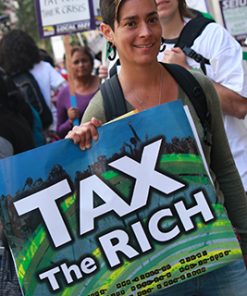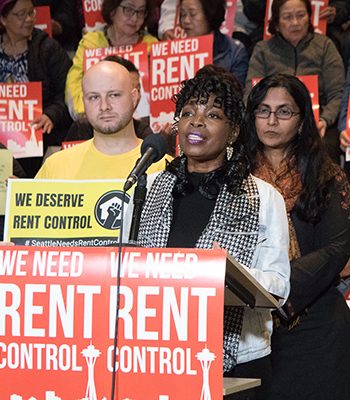“Each person deserves a day away in which no problems are confronted, no solutions searched for. Each of us needs to withdraw from the cares which will not withdraw from us.” – Maya Angelou
By mandating paid leave, societies promote mental health, productivity, and the revolutionary idea that people are not machines—no matter how many emails they can send in a day.
Americans work longer hours than nearly any other industrialized nation, yet studies show they are less happy, more stressed, and more prone to burnout than their European counterparts. In much of Europe, where four to five weeks of paid vacation is standard, time off is not seen as an indulgence but as a fundamental part of a healthy, functioning society.
The word recreation literally means re-creation—the process of restoring oneself, physically, mentally, and emotionally. Extended vacations allow people to truly step away from work pressures, reconnect with their families, travel, engage in creative pursuits, or simply rest without the creeping anxiety of an imminent return to the grind. Compare this to the United States, where workers are lucky to get two weeks off, and even then, are often pressured not to take them. Once your body and mind start to truly rejuvenate, it’s back to the grind. The result is not productivity, but exhaustion. Meanwhile, countries with generous vacation policies—like France, Germany, and Sweden—boast higher worker satisfaction, better health outcomes, and strong economies.
Humans are not productivity bots. They need breaks—not just to recharge physically, but to reset mentally, emotionally, and spiritually. Paid vacation isn’t just a perk; it’s a critical component of a healthy life. And yet, in some work cultures, admitting you need time off is like confessing weakness, that you’ve somehow betrayed the sacred hustle. Burnout isn’t just a buzzword; it’s a full-blown mental health crisis. Prolonged stress leads to anxiety, depression, sleep disorders, and even physical ailments like heart disease. The irony? Burnout doesn’t make people more productive; it makes them less effective. It’s like trying to drive a car with no oil—sure, it’ll run for a bit, but eventually, it’ll seize up, and you’ll be stuck on the side of the road wondering why you ignored the warning lights.
Taking a long, annual vacation should be a normal, expected part of work life. This isn’t utopian fantasy; it’s reality in many countries. In France workers are legally entitled to at least five weeks of paid vacation, and the concept of le droit à la déconnexion (“the right to disconnect”) protects employees from after-hours emails. Germany and Sweden also have generous vacation policies The result? Higher productivity, better work-life balance, and a national identity built around the radical idea that life isn’t just about work.
In the U.S., paid vacation isn’t federally mandated, and about one in four workers don’t get any paid time off at all. Even those who do often feel guilty using it, haunted by the fear of appearing “uncommitted” or “replaceable.” This toxic work culture celebrates overwork as a badge of honor, as if exhaustion is a status symbol, as if that’s something to aspire to, rather than a cry for help.
The absence of paid vacation isn’t just bad for individuals; it’s bad for businesses. Studies consistently show that well-rested employees are more productive, creative, and engaged. Vacation improves cognitive function, reduces errors, and boosts problem-solving skills. It’s like rebooting a computer—things just work better afterward.
Paid vacation is about dignity. It’s about recognizing that people deserve time to exist outside of their job descriptions—to spend time with family, explore new places, or simply sit quietly and remember what it feels like to not be busy. Rest isn’t a reward for hard work; it’s a prerequisite for it.
The benefits ripple out into society. Paid vacation reduces healthcare costs by lowering stress-related illnesses. It strengthens families, fosters community engagement, and improves quality of life. In countries with generous vacation policies, people report higher levels of happiness, life satisfaction, and overall well-being. It turns out that time off isn’t just good for the soul; it’s good for the GDP..
The lack of paid vacation disproportionately affects low-wage workers, who are least able to afford unpaid time off yet often face the most physically demanding jobs. This creates a system where rest is a luxury reserved for the privileged, while the working poor are trapped in an endless cycle of labor without reprieve. Paid vacation isn’t just an economic issue; it’s a matter of social justice.
Time off reduces stress hormones, improves mood, and enhances mental clarity. It fosters creativity by giving the brain space to wander, daydream, and make connections it can’t while stuck in task mode. Ever wonder why your best ideas come in the shower or on a walk? It’s because your brain needs downtime to process and innovate. Vacation also strengthens relationships. Time spent with family and friends without the distraction of work obligations deepens connections and builds social support networks, which are crucial for mental health. It’s not just about “getting away”; it’s about coming back more connected—to yourself and to others.
Conversely, the absence of vacation leads to what psychologists call “cognitive fatigue,” a state where the brain’s ability to function effectively deteriorates over time. It’s like running a marathon without water. Eventually, you hit a wall—not because you’re not capable, but because you weren’t given the resources to sustain your effort.
Paid vacation policies also support economic stability. When people have time off, they spend money on travel, leisure, and local businesses, stimulating the economy. It’s a virtuous cycle: rest fuels spending, spending fuels growth, and growth supports more jobs. Who knew that napping on a beach could be an act of economic patriotism?
The most compelling argument for paid vacation is this: life is short. No one reaches the end of their days wishing they’d spent more time in the office. They wish they’d traveled, laughed, rested, and spent time with the people they love.
Therefore, under Folklaw:
Paid vacation shall be a universal right, ensuring that all workers have access to sufficient time off for rest, recovery, and personal fulfillment. Employers will be required to provide a minimum of four weeks of paid vacation annually, with additional time for long-term employees.
Vacation time shall be protected from encroachment by work obligations, with legal safeguards against retaliation for taking leave. Flexible scheduling will accommodate diverse needs, including family care and cultural observances.
Public awareness campaigns will promote the value of rest, challenging workaholic norms and fostering a culture that prioritizes well-being over relentless productivity.






Discussions
There are no discussions yet.